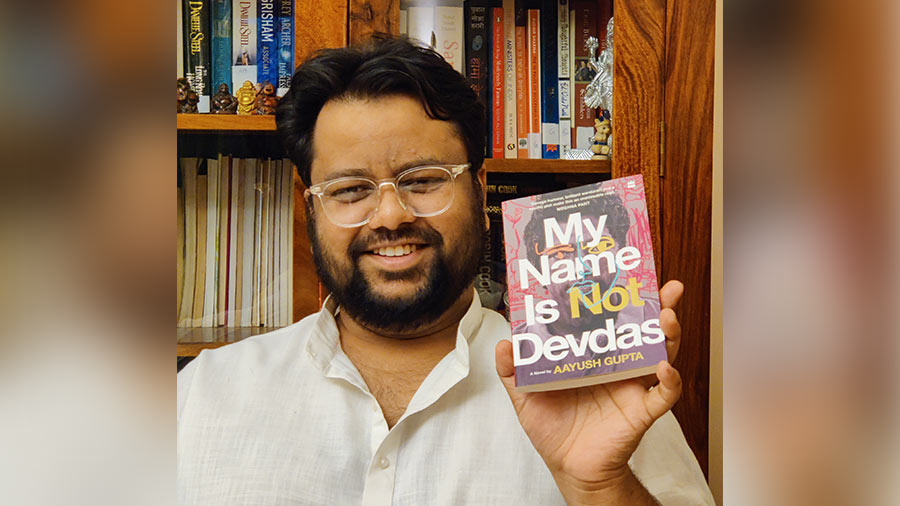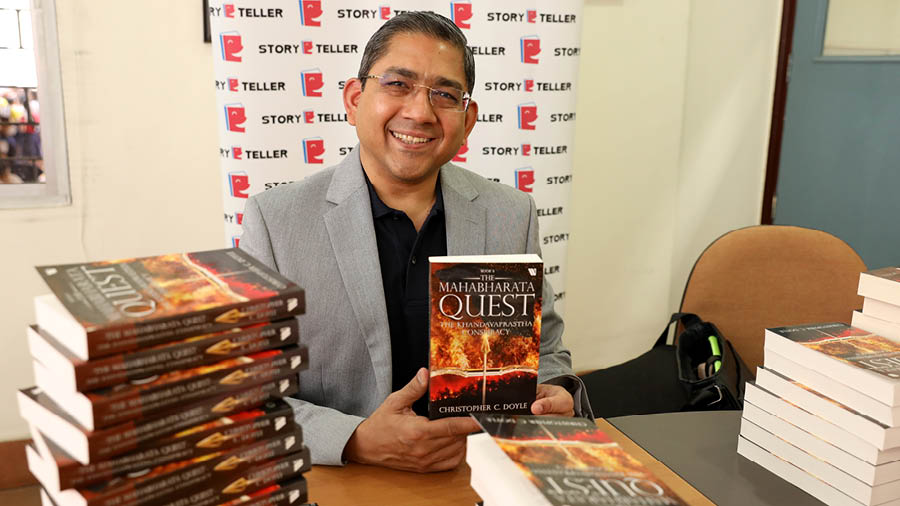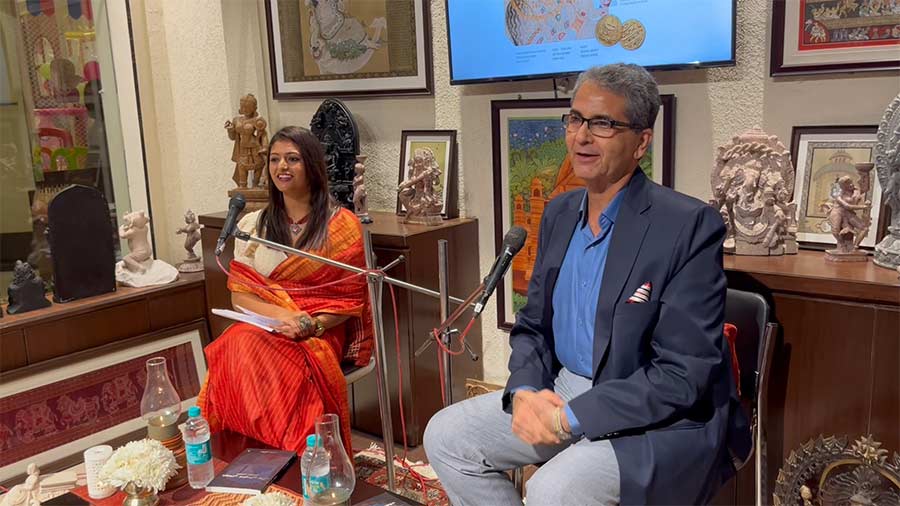Devdas… Paro… Chandramukhi… the very names create visions of opulence, huge mansions and elitism. Cut to 2022, when the three characters are college-goers. Author Aayush Gupta has taken an interesting take on the classic characters by placing them in contemporary situations in his new book My Name is Not Devdas published by HarperCollins.
My Kolkata chats with him about the book, the twist in the tale and more.
Excerpts from the conversation…
My Kolkata: What attracted you to Devdas?
Aayush Gupta: The reason that I took up the adaptation was because it allowed me to experiment little with form. These are characters and stories which most people are already aware of. If you say Devdas, Paro (Parvati) and Chandramukhi, you know it’s going to be a sort of a love triangle where Devdas falls in love with Paro, gets rejected, goes to Chandramukhi and falls in love with her. So, instead of me focusing too much on trying to tell the plot, I could experiment with these characters and see what is going on. The story basically changes, it’s not the same story, it’s the same set-up I would say. From the societal pressures of being in a relationship to basically your own belief system that affects who you are comfortable in having a relation with.
Devdas is an activist. You have mentioned Dalits, honour killing, the LGBTQ and the marginalized. What was the best part about placing Devdas in contemporary India?
Every author takes from what they hear or read in their own time. When Sarat Chandra Chattopadhyay wrote Devdas he had written about Beti Bechwa Pratha and all of those things. I think that was what he grew up on, what he read in the newspapers. Setting this in the contemporary day and age allowed me to kind of give an imprint of what I have in my mind of what our society is and what our world currently is like. The primary thing here was I did not set out to write a book that had elements of honour killing or Dalit oppression or even acid attack. I set out to re-write Devdas in our times but I think these things organically came into it because this is what I have heard or read about all these years.
Devdas, in its various forms and adaptations, has been much loved and accepted. Did you think it was challenging to try and re-narrate the timeless classic?
I think at first, I might have. The first idea of doing this adaptation came from the editor of my last book. I thought that I would want to do a new story. I didn’t want to adapt anything but then I started writing and wrote three chapters and a synopsis. By the time I finished writing three chapters I was in love with it. So, you have three characters. Devdas is as much a part of the narrative as Paro or Chandramukhi are. All of them have equal say in what we hear of their lives. It’s not Devdas telling me Paro aisi thi it’s also Paro telling us this is what I think of Devdas and Chandramukhi. Writing those first three chapters in first person from three different characters was. Devdas has become an adjective rather than an out and out character.
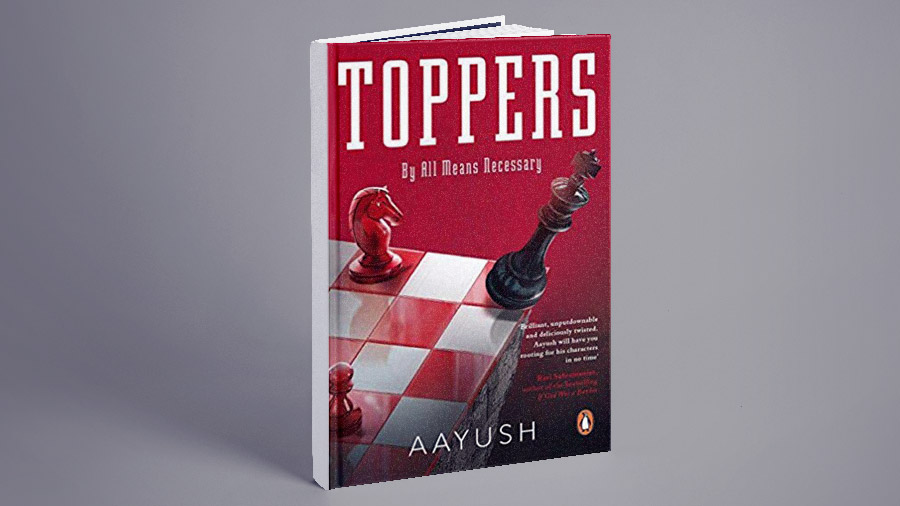
Book cover of 'Toppers' by Aayush Gupta Amazon
Your debut book Toppers was for young adults. My Name is not Devdas is for the general audience and a take on a well-known novel. Did it make it any easier to pen down this novel compared to the previous one?
Not in terms of theme I would say. Like My Name is Not Devdas has mature themes and I don’t need to hold back anything. For me the challenge comes with craft. Toppers was a third person narrative, almost an omnipresent narrative of six toppers in a school who are vying for the position of head scholar. That book was challenging because I had to balance six people telling their own stories and finding out where they intersect in the one-year timeline. That was chronological. My Name is Not Devdas is non-linear. So, it was tougher to write in the sense that I have three first person narratives and they might be contradictory to each other. So, you have to piece it together like a puzzle.
In an article penned by you, Devdas is compared to new-age Kabir Singh. Do you think the character and his personality is less of a tragic romantic; and more of a frustrated egomaniac?
I think I would agree with that. I’m not sure if I would use the term egomaniac but I would certainly see that the character was toxic in its own way. If you end up meeting someone like Devdas, have a little sympathy towards the person because there should be somebody, at least one person who sheds a tear when you die. There was sympathy from Sarat Chandra because he knew this guy might not deserve that much sympathy. He might have been spineless, violent towards Paro. I would say tragic would be, if the world did this to him; I think Devdas usually brought most of his miseries upon himself. This was tragic in its own way but it does not exclude the toxicity.
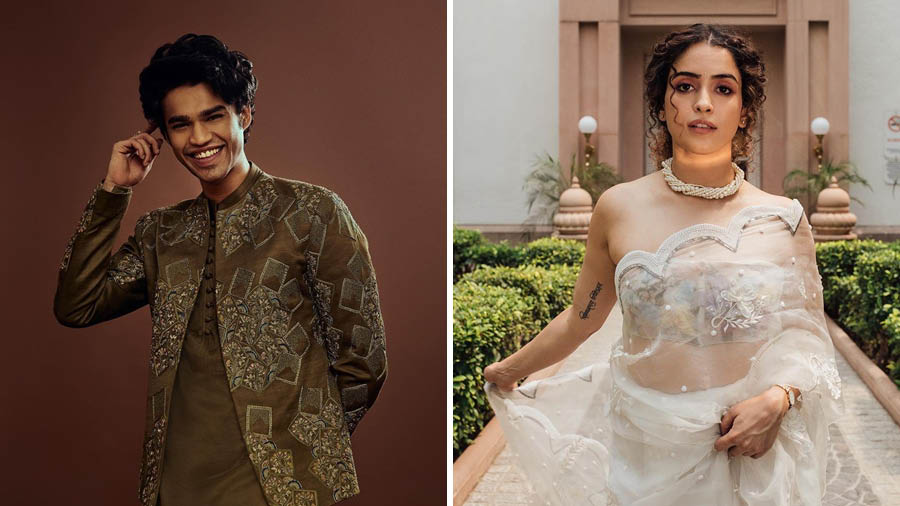
(Left) Babil Khan and (right) Sanya Malhotra Instagram
If your book is to be made into a movie, who would you want to see being cast as Devdas, Paro and Chandramukhi?
I honestly have no clue. These are very young characters, they are college students. So somebody young I would say. There are not very many well-known young actors. I have worked with Babil [ Khan] recently on a show. So Babil is an amazing actor. I would love for him to be Devdas. Saaniya Malhotra is a fantastic actor and I really like Mrunal Thakur.
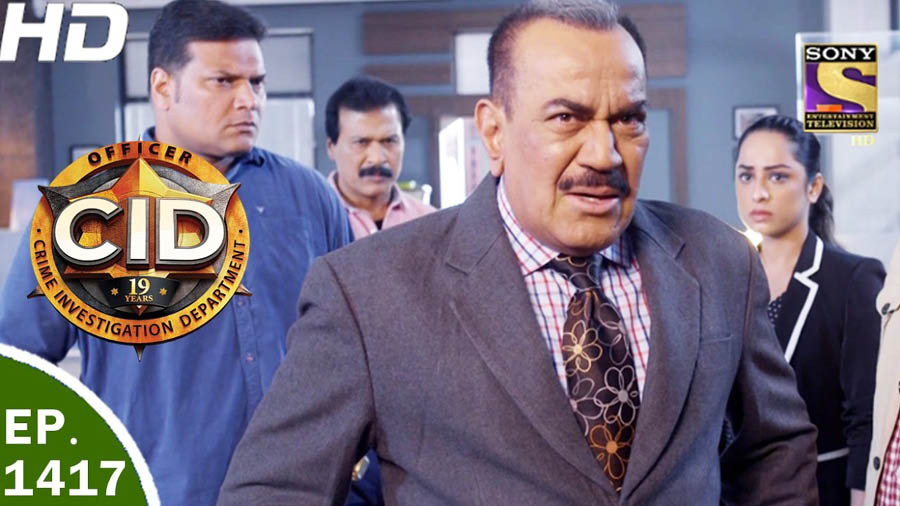
A still from the show 'CID' YouTube
Can you share your experience of writing some episodes of the iconic CID?
Writing for CID was a lot of fun. It was stressful also when we were cracking stories. We had Sreedhar Raghavan Sir as the creative producer and he was a great mentor to have in the room. He made it so easy for us to come up with stories and to crack them. It’s a show that had been going on for 20 years, there was a certain pattern that you had to follow. Also, in TV there is a certain rigidity because you have to follow the structure. I remember once we were shooting Abbas Mastaan had come on set for an episode they were promoting for their directorial Machine. Mustafa was being launched in it and then there was Kiara Advani. I had written that in their film premiere there is a murder and now they are having these whacky directors who are so synonymous with thrillers and murder mysteries and all trying to help the police crack who was killed at the premiere and why.
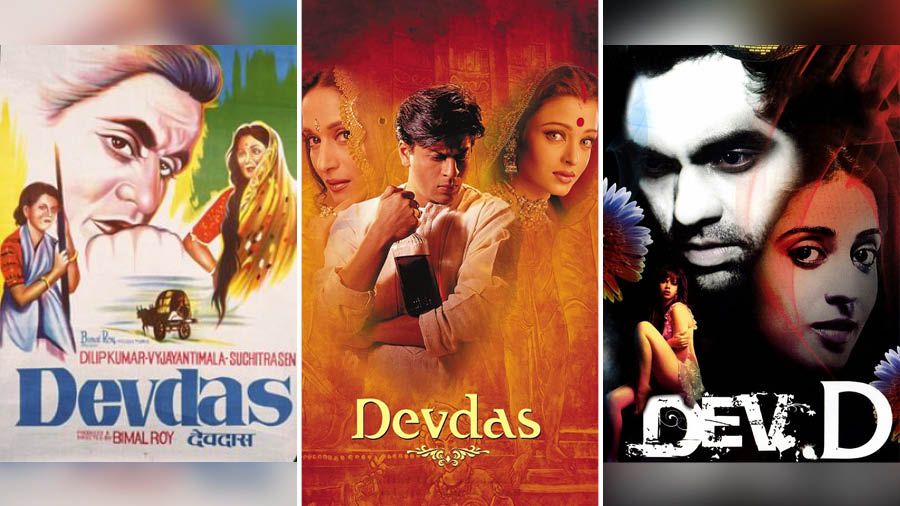
Posters of movie adaptations of 'Devdas' through the years — 'Devdas' (1955) directed by Bimal Ray with Dilip Kumar in the lead role; Sanjay Leela Bhansali-directed 'Devdas' (2002) and 'Dev D' (2009) directed by Anurag Kashyap
Rate the various adaptations of Devdas and tell us what you like/don't like about them.
I would say the one that has made the most lasting impression on my mind is Sanjay Leela Bhansali’s Devdas because that was the first time I saw him on screen. I hadn’t read the book or seen any other adaptation. For me Devdas was this grand opulent and hiked and melodramatic emotions and everything. At that point I enjoyed it. But when I saw the Dilip Kumar version I thought okay this has something different in it. It has something else in it. I would say that most similar in tone to My Name Is Not Devdas is Dev D.
